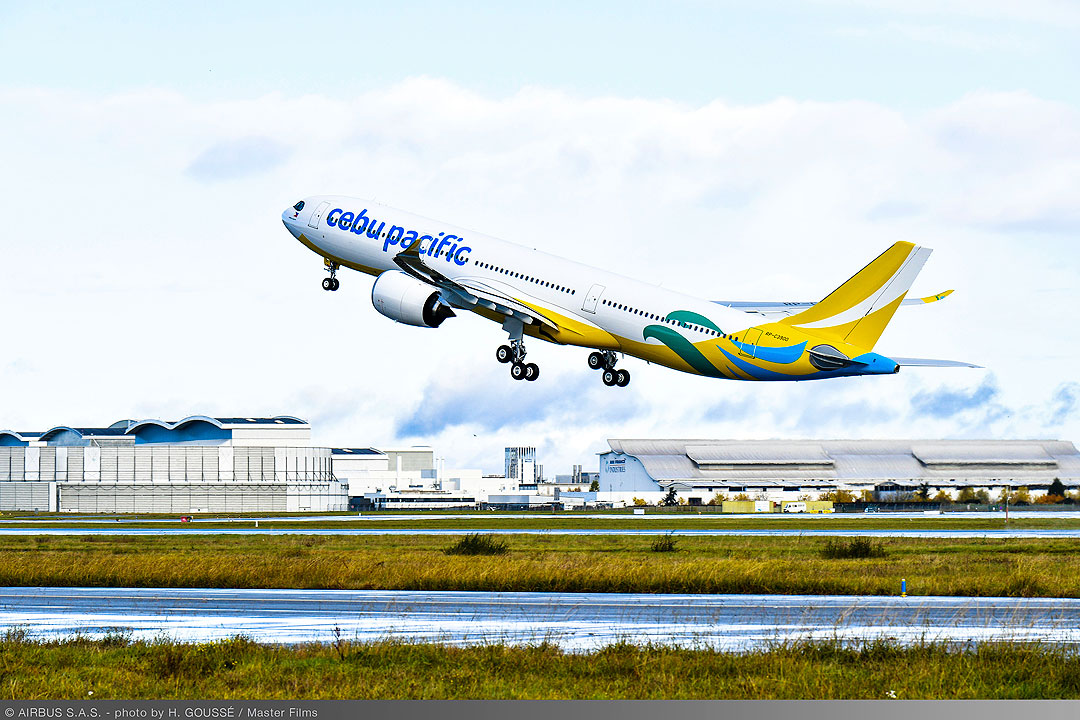Cebu Pacific receives Airbus eco-plane

CEBU Pacific received its first Airbus A330neo (new engine option) on Sunday, a larger aircraft that will allow it to carry more travelers in a single flight and reduce carbon footprint per passenger, the budget carrier said.
The airline targets to have an all-neo fleet by 2027.
“[This] brings us closer to our target… and shows our commitment to making air travel accessible while ensuring environmental and social sustainability,” Cebu Pacific Chief Strategy Officer Alex B. Reyes said in an e-mailed statement.
According to aviation think tank Center for Asia Pacific Aviation (CAPA), the airline industry, which is still reeling from the financial shock of the coronavirus pandemic, faces another critical challenge as global pressure to accelerate net zero emissions grows.
“With the A330neo’s latest technologies, this eco-plane uses 25% less fuel than previous generation aircraft — able to consume as little as 1.4 liters per seat per 100 kilometers, thus, burning less fuel and emitting less carbon,” Cebu Pacific said.
CAPA and its partner Envest Global, a carbon reduction strategist, said in their report released in October that the “next three to five years could see failures of multiple airlines that do not have the financial strength to invest in decarbonization, and/or misjudge the need to accelerate their climate mitigation plans.”
The budget carrier’s new aircraft features 459 lightweight seats. “The A330neo is the first aircraft in the world already certified to comply with ICAO’s (International Civil Aviation Organization) CO2 emissions standards beyond 2028,” Airbus Asia-Pacific President Anand Stanley said.
“The airline will benefit from the aircraft’s step-change in performance and economics, while maintaining passenger comfort and lowest operating costs,” he added.
Cebu Air, Inc., the listed operator of Cebu Pacific, saw its attributable net loss in the nine months to September widen to P21.99 billion from a loss of P14.69 billion in the same period last year.
The company’s January-to-September total revenues dropped 52.7% to P9.15 billion from P19.34 billion in the same period in 2020. Operating loss reached P18.84 billion from P13.72 billion last year. — Arjay L. Balinbin



